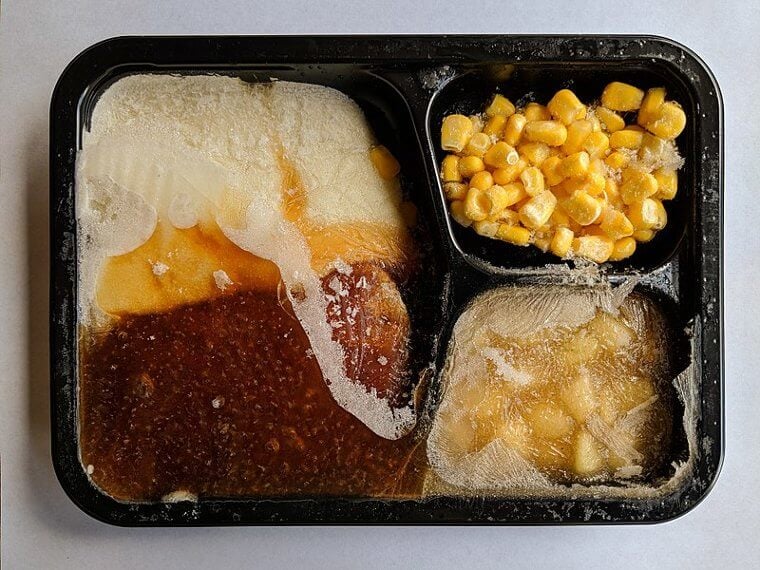Foods Diabetics Should Avoid for Better Blood Sugar Control
Frozen Meals
After a long, tiring day at work, it’s easy to feel too drained to whip up dinner. That’s where frozen meals come in handy—they’re quick and convenient! Just pop them in the oven or microwave, and in minutes, you have a meal ready to go. But while they might save time, frozen dinners often aren’t the best choice, especially for those managing diabetes.
Many frozen meals are packed with added sugar, preservatives, and salt to keep them fresh and tasty. Unfortunately, these ingredients can lead to sudden spikes in blood sugar levels, which is something people with diabetes need to avoid.
It’s crucial to be mindful of what’s in those frozen meals. Instead of relying on them regularly, consider preparing simple, healthy meals in advance and freezing them yourself. This way, you can control the ingredients and make sure they fit within your dietary needs. Even something as simple as grilled chicken and veggies can be prepped ahead of time and frozen for those busy nights.
By taking a little time to plan ahead, you can still enjoy the convenience of a quick meal while making choices that support your health. Remember, every small step toward better nutrition counts!

Gluten-Free Food
In recent years, gluten-free options have become much more common in grocery stores, which is great news for those with gluten allergies or intolerances. However, this trend can make it trickier for individuals who need to avoid gluten while also managing diabetes. Many gluten-free products are often higher in carbs, as manufacturers try to replicate the texture and taste of gluten-containing foods.
This doesn’t mean you have to completely eliminate gluten-free meals from your diet. Instead, it’s all about being mindful of portion sizes and choosing your foods wisely. Pay attention to how much you’re eating and look for options that are lower in refined carbs. By doing this, you can still enjoy gluten-free meals without causing major spikes in your blood sugar levels. Staying informed and making thoughtful choices will help you maintain a balanced diet that supports your health!

Pretzels
As much as we enjoy pretzels as a tasty snack, it’s important to recognize that they’re not the healthiest option, especially for those managing diabetes. While they’re super convenient to toss in your bag for a quick bite, pretzels are often loaded with salt and other seasonings that can be detrimental to your health.
For individuals with diabetes, keeping an eye on salt intake is essential, and snacking on pretzels can easily push those numbers higher. Plus, they’re primarily made from refined carbs, which can cause blood sugar levels to rise.
Given these factors, it’s wise to consider leaving pretzels off your grocery list. Instead, look for healthier snack alternatives that are lower in salt and made with whole grains. Your body will thank you for making those smarter choices!

Bottled Tea
If you love starting your day with sweet or bottled tea, you’re definitely not alone—lots of people enjoy that refreshing taste! Grocery stores are filled with all kinds of bottled teas, making them a convenient option for on-the-go hydration. However, for individuals with diabetes, it’s important to be cautious about these beverages.
Many bottled teas can contain a surprising amount of sugar, which can spike blood sugar levels quickly. Some of these drinks come in larger sizes, meaning you might be consuming more sugar than you realize in just one bottle.
That said, it’s still possible to enjoy bottled tea—just be sure to read the labels closely! Look for options that are low in sugar or unsweetened. Keeping an eye on portion sizes can also help you make better choices. With a little attention, you can still indulge in a refreshing drink without compromising your health.

Bagels
Many people consider bagels a go-to breakfast choice, but it’s important to rethink that assumption—especially for those managing diabetes. While bagels can be delicious and come in a variety of flavors, they can be just as impactful on blood sugar as consuming a hefty amount of white bread.
Bagels are typically made from refined grains and contain a high level of carbohydrates, which can cause blood sugar levels to spike quickly. This makes it challenging for individuals with diabetes to maintain stable glucose levels. Even whole grain bagels, often seen as a healthier option, can still lead to significant increases in blood sugar.
When you compare bagels to traditional slices of bread, opting for bread might actually be the better choice in many cases. It’s all about making informed decisions in the morning to support better health and more stable blood sugar levels. So next time you’re considering breakfast, think twice about that bagel and explore other options that will keep you feeling balanced and energized!

Avoiding certain foods is essential for managing diabetes effectively and keeping blood sugar levels stable. The tips shared in this article can empower people with diabetes to make informed dietary choices, ultimately leading to better health outcomes and improved control over their condition.
By steering clear of high-sugar and refined carbohydrate foods, and focusing on balanced, nutritious options, individuals can significantly enhance their quality of life. It’s all about finding the right balance—incorporating whole foods, lean proteins, healthy fats, and plenty of vegetables into meals. This not only helps in managing blood sugar but also supports overall well-being.
Making these dietary changes might seem daunting at first, but with time and practice, it becomes easier. Plus, there are so many delicious and satisfying options out there! By prioritizing health and being mindful of food choices, those with diabetes can enjoy their meals while effectively managing their condition. Every positive step counts toward a healthier future!

